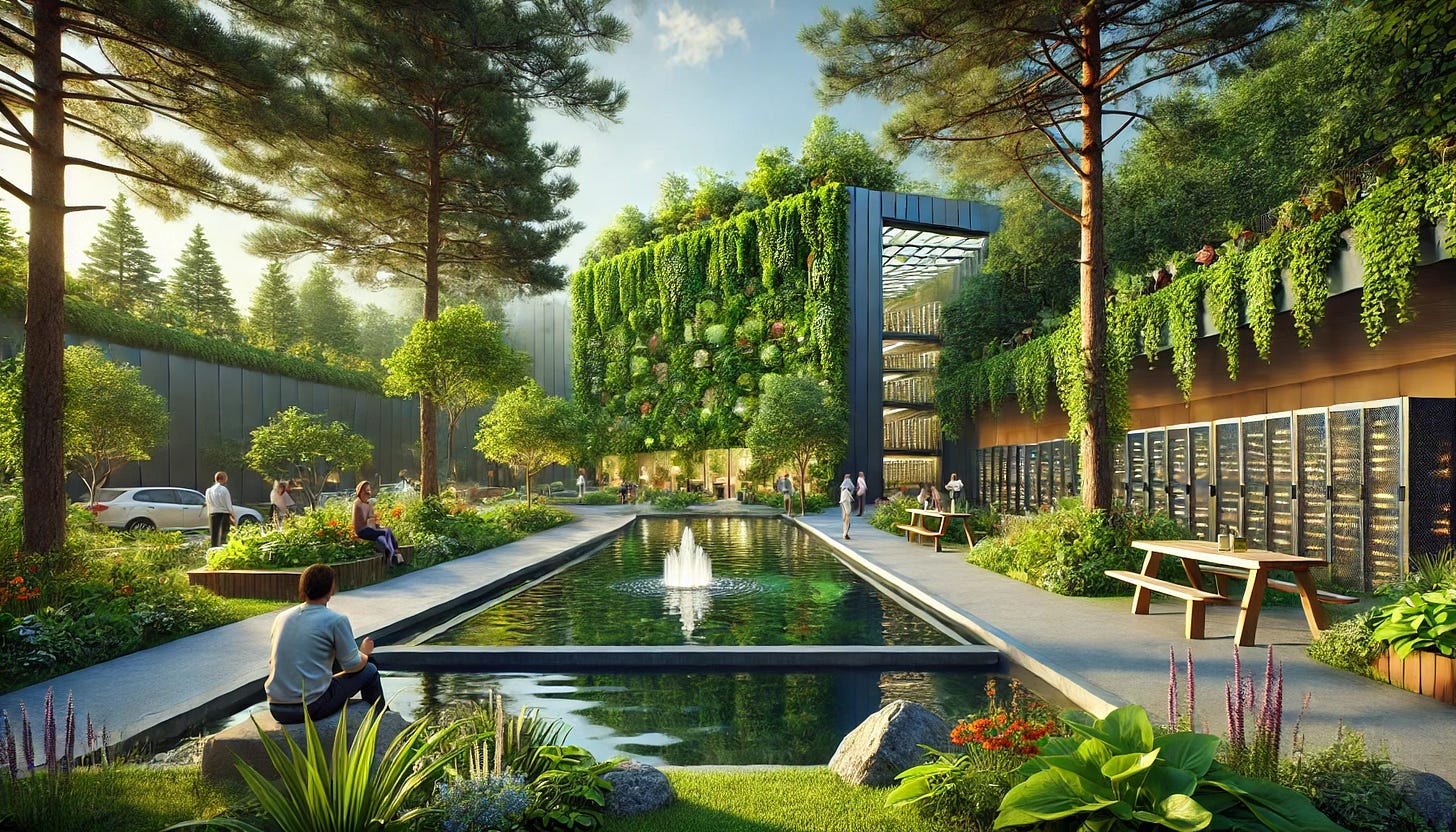AI is an environmental gift, not a nightmare
We urgently need to reframe how AI is accelerating the green energy transition
I often hear people voicing their concerns about AI’s enormous energy thirst will cause an environmental nightmare. They even refuse to use AI out of environmental concern. The problem is: this argument is plain wrong. It’s actually the opposite: AI is accelerating the already accelerating green energy transition.
Fear versus reality
The fear narrative around AI's energy consumption reminds me of someone panicking about leaving a LED light on while their neighbor is heating their swimming pool with coal. Yes, AI consumes energy. But it's like worrying about a drop of water while standing next to Niagara Falls.
As environmental scientist Sam Matey points out in his brilliant analysis “The future of AI and Energy”:
"The International Energy Agency expects the AI-driven data centers boom to drive only 3% of electricity demand growth to 2030 worldwide."
That's it. Just 3%.
The Hidden force multiplier
What the doomsayers miss is that AI isn't just consuming energy, it's revolutionizing how we produce, distribute, and optimize energy. It's like having millions of Einstein-level scientists working 24/7 on solving our energy challenges.
Consider this stunning fact from Matey's research:
"Machine learning-enabled predictive maintenance can improve [solar farm] productivity by up to 25%."
That's not just incremental improvement - that's game-changing optimization at scale.
The exponential opportunity of AI x Green Energy
Here's what's truly mind-blowing: We're already in the middle of the fastest energy transition in human history. Solar power is outperforming everyone's wildest expectations. Perhaps the most telling quote from the analysis:
"Ten years ago, some of the top energy experts on the planet thought we'd have a certain amount of solar power generating capacity by 2050, and we got it by 2023."
But there's another powerful force at play that few people are talking about: Big Tech's massive capital investment. The AI boom is driving unprecedented investment in energy infrastructure. Companies like Google are pouring billions into new clean energy projects to power their AI operations. Alongside with consuming energy they’re also expanding the entire clean energy ecosystem with massive capital flows.
The real story is much brighter than you think
The next time someone tells you AI is an environmental nightmare, remind them: We're not facing an energy crisis: We're witnessing an energy revolution. AI isn't the villain in this story; it's the catalyst that could help us solve our environmental challenges faster than we ever thought possible.
What we're seeing is what systems thinkers call a powerful positive feedback loop: AI drives clean energy innovation, which makes AI more sustainable, which enables more innovation. Once exponential effects kick in, accelerating change becomes unstoppable
The real question isn't whether AI will consume too much energy. The real question is: How quickly can AI help us build the clean energy future that's already unfolding?
Tom De Bruyne
PS: I’m currently writing a book called Chain Reactions: How successful leaders transform behavior at at scale. Sign up to my substack to get early access to chapters and insights.
---
🫵 Master psychology of influence in our open courses or our Learning and Development Tracks for Teams,
🫵 Hire our experts in reputation, transformation and behavioral change.|
🫵 Read our Managementbook Beststeller “The Art of Designing. Behaviour”.
🫵 Follow me on Linkedin
🤓 Subscribe to our Newsletter “1,5 minutes on Influence”,
🎧 Listing to our (Dutch) podcast “Wat gebeurt er eigenlijk in je hoofd?”





100 % agree ! Another example - tesla reaal world ai ( FSD) will enable a generalized ( not geofencedb) solution for robotaxi’s to roam the world. One robotaxi will replace at least 25 ice cars on our roads due to higher utilisation rates